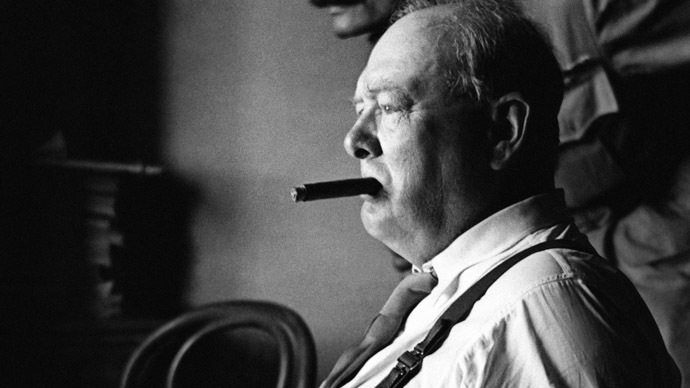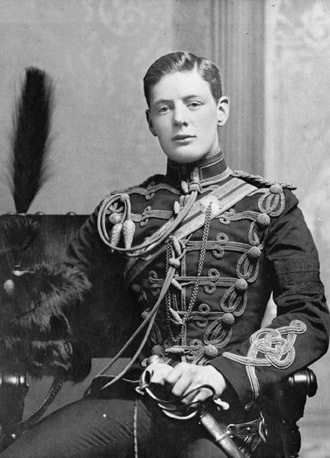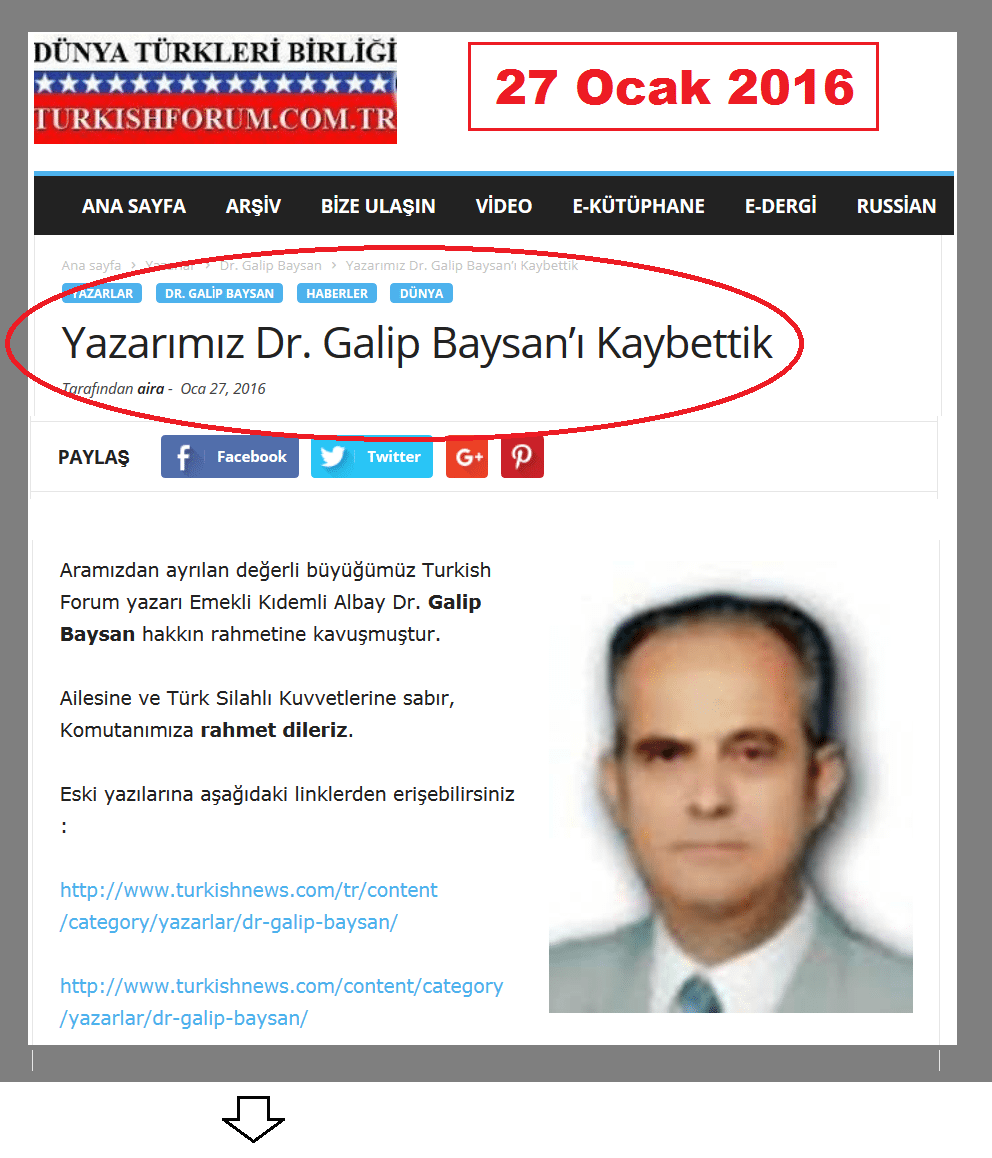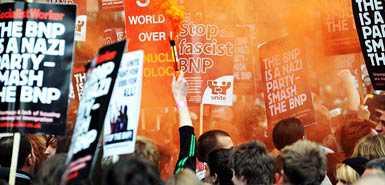18 March 2013 was the 98. th anniversary of the wonderful defence of Dardanelle Straits by Turkish and German soldiers. Any one who reviews the history can easily see that, one man had the whole responsibility of these bloodshed operations. He was the First Lord of the British Admiralty, Winston Churchill. We think it would be better to recognize him in order to understand how and why Mr Churchill devoted himself so much to this operation.
The year 1874 was an eventful one for Lord Randolph- he had been elected to parliament and he had married the girl he loved.Then, on 30th of November, his first son, Winston Leonard Spenser Churchill was born at Blenheim, the ancesteral estate of the Dukes of Malborough. Two years later he was appointed Lord-Lieutenant of İreland by Prime Minister Benjamin Disraeli. Winston’s earliest memories are of these Dublin-years. While his father was busily involved in advancing his political career, Lady Churchill was equally busy with social activities. As a result Winston was really brought up by his nurse, Mrs. Everest.
With his father’s encouragement, Winston began to prepare for Sandhurst, the West Point/Harp Okulu of England. He took the Sandhurst entrance examinations twice and failed both times. With his third try , Winston won the examinations and he was accepted Sandhurst. At the end of two years, he was graduated with honours from sandhurst, eight in a class of one hundred and fifty.(1) His memories with this school is as fallows:
“İn Sandhurst I had a new start. I was no longer handicapped by post neglect Latin, French or Mathematic. We had now to learn fresh things and we all started equal. Tactic, Fortification, Tophography ( map making), Military Law and Military Administration formed the whole curriculum. İn addition were Drill, Gymnastic and Riding. My father instructed his book seller Mr.Brain to send me any book I might require for my studies. So I ordered many books, including stories dealing with the American Civil, Franco-German and Russo-Turkish wars.(2) Sometimes I was invited to dine at the Staff Collage, less than a mile away, where all the cleverest officers in the Army were being trained for the high command.(3) Here the study was divisions, Army Corps and even whole Armies, of bases ,of supplies and lines of communication and railway strategy. This was thrilling. My father arranged for me to go through additional course of riding school at Knightbridge Barracks with the Royal Horse Guards. I think I was pretty well trained to sit and menage a horse. This is one of the most important things in the world.” (4)
İn March 1895, Churchill received his commision in the 4th Hussars, a crack cavallary regiment composed of selected soldiers. İn the same year there was a revolt in Cuba against Spain. Using all his family connections, he obtain permission for himself and another subaltern.Then he went to see the editor of the London Daily Graphic and offered his services as a foreign correspondent- for a fee.The editor agreed to pay him 25 $ for each article he sent in. Early in September they arrived to Havana.(5)
İn September 1896 his main unit 4th Hussars was sent to İndia in a ship. While he was there,he heard about the revolt of Patans who where living in the North-West frontier of İndia. Churchill lost no time in calling on the editor of a local paper, The Allahabat Pioneer and easily talk the newspaperman into putting him on the staff. Churchill’s mother , who was being kept informed by wire , used her influence in London to get him an appointment as war correspondent for the Daily Telegraph. Thus armed with assignments from two newspapers, Churchill approached his commanding officer and wheeled an extended leave to cover the fighting. For the next two months Churchill stayed with the Army that was fighting what came to be known as the Frontier War. All during this time he was sending his reports on the fighting to the Daily Telegraph and Allahabat Pioneer. Signed simply “by a young officer” his articles became a sensation in the London newspaper world. Churchill had never thoought of himself as a professional writer, but his ability on style had improved greatly since his reports on the Cuban War. He was beginning to show a real talent for writing. He collected all of his newspapers articles, added some new material and in March 1898, his “The Story of the Malakand Field Force” was published. When his publisher sent him his share of the profits, Churchill was amazed to learn that it was equal to two years of his pay as an officer. İt was then that he began to think seriously of a career as a military writer covering wars whereever they broke out in the World. He made his mind to resign from the Army as soon as the trouble in İndia was over and concentrate on writing.(6)
Soon after the end of the Frontier War, news reached İndia that a British Army under General Herbert Kitchener’s command was gethering in Egypt for an attack on rebel forces in the Anglo-Egyptian-Sudan. Some years earlier The British Commander in Sudan, General C.G.Gordon had been killed by Dervish Army elements. This time British were ready to avange the murder of General Gordon. Every officer in İndia was eager for a chance to take part in this campaign. Churchill promptly applied for a transfer for Africa. His application to join the Anglo-Egyptian Army had been approved by the war office, but the commander Sir Herbert Kitchener wanted no part of him.He did not like young upstars who wrote books that criticized and gave advice to the high command. Churchill, however, was not going to accept defeat so easily. He obteined leave from his regiment and took the next boat to London.With her mothers effords he received a letter from the private secretary of Lord Salisbury, the Prime Minister. Lord Salisbury had read his book on İndia and like it.After their meetings, Salisbury sent a telegraph to General, couldn’t Kitchener find a place for young Churchill? But Kitchener didn’t change his mind and refused to accept Churchill as a regular army officer. But several days later Churchill received the following note from the war department:
“ You have been attached as a supernumerary Lieutenant to the 21st Lancers for the Sudan Campaign…İt is understood that you will proceed at your own expense and that in the event of your being killed or wounded in the impending operations or for any other reasons , no charge of any kind will fall on British Army Funds. Churchill hurried down to the offices of the Morning Post and persueded the editor to give him an assignement as a war correspondent.This job would at least pay his expenses. Six days later he was in Cairo.(7) Churchill expected a message from General Kitchener ordering him to leave Africa, at any moment. But he later learned that Kitchener was glad upon hearing of the young officer’s appointment. He overcomed the Dervish Army problem and Churchill wrote all the stories of war to the Morning Post newspaper. Morning Post paid more than 300 pound for his series of articles on the battle of Omdurman. His new stories on the Sudan had attracted a great deal of attention and his name was beginnig to make an impression outside social and army circles.Churchill planned to resign from the army before the end of the year and he gave considerable thought to a writing career. As an author he would earn much more money than he ever could as a professional soldier. Beside this, the opportunity for adventure and travel would be limitless.
Another possibility was a career in politics.During a visit to the Conservative Party headquarters, he was asked by a party member if he would be available to speak at a few fortcoming political events. Churchill made his first political speech in the city Bath and he was more amazed when the audience cheered him wildly. The next day Morning Post printed his speech and even published an editorial which proclaimed him a new and exciting figure on the political scene. Shortly after, he resigned from the Army.(8) During the voyage to London he spend most of his time complating a book on the Nile Campaign. Entitled “The River War”, it turned out to be a success with critics and public alike.(9) There was a special election, was being held in Oldham,Lancashire. The leaders of the Conservative Party thought that this would be a good opportunity for Churchill to get some experience in politics by seeking a seat in the House of Common. He enjoyed the campaign but lost his first election by 1300 votes.
REFERANCES:
(1) Quentin Reynolds: Winston Churchill, p.2-12 (Random House New York-1963)
(2) Winston S. Churchill: My Early Life, p.51 (Collins Fontana Books, 8th impression, London And Glasgow – 1972)
(3) I have had the honour of to be a student of this school (British Staff Collage Camberley) in the year of 1971
(4) My Early Life, p.52-53
(5) Q.Reynolds, p.17-18
(6) Q.Reynolds, p.33-34
(7) Q.Reynolds, p.36-39
(8) Q.Reynolds, p.46-49
(9) Winston Churchill, The River War- Battle of Omdurman.
Dr. M. Galip Baysan




